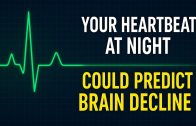மனிதனுக்கு alarm-மாக hypothalamus செயல்படுத? .#sleep #sleeplessnights #sleeping #sleeptime
## The Hypothalamus: Your Body’s Master Control Panel with an Alarm Function
The hypothalamus, a tiny but mighty region nestled deep within the brain, plays a crucial role in regulating a vast array of bodily functions. But beyond its role as a control center, it also functions as the body’s internal alarm system, ensuring your survival and well-being. Let’s delve into the fascinating world of the hypothalamus and explore its alarm functions:
**The Master Control Panel:**
* The hypothalamus acts as the central command center, influencing numerous physiological processes:
* **Hormone Production:** It directs the pituitary gland, the body’s master gland, to release hormones that regulate growth, reproduction, metabolism, and more.
* **Temperature Regulation:** It maintains your body’s core temperature through sweating or shivering.
* **Hunger and Thirst:** It controls your appetite and thirst, ensuring you seek sustenance and hydration.
* **Sleep-Wake Cycle:** It regulates your sleep-wake cycle, promoting alertness during the day and sleepiness at night.
* **Emotional Responses:** It plays a role in processing emotions like fear, anger, and pleasure.
**The Alarm System:**
* Within this control center lies the hypothalamus’ alarm function, responsible for triggering important responses in critical situations:
* **Fight-or-Flight Response:** When faced with danger or stress, the hypothalamus activates the sympathetic nervous system, prompting the body’s “fight-or-flight” response. This includes increased heart rate, breathing, and blood pressure to prepare you to react.
* **Homeostasis:** It constantly monitors internal conditions like blood sugar, body temperature, and fluid balance. If any of these fall outside the optimal range, the hypothalamus triggers corrective actions to restore homeostasis (balance) in the body.
* **Hunger Pangs:** When your blood sugar levels drop, the hypothalamus sends hunger signals to motivate you to seek food and maintain energy levels.
* **Thirst Response:** Similarly, when dehydrated, it triggers thirst to ensure proper fluid intake.
**The Importance of a Well-Functioning Hypothalamus:**
* A healthy hypothalamus is vital for maintaining overall well-being. When it malfunctions, various issues can arise:
* **Hormonal Imbalances:** Can lead to problems with growth, reproduction, and metabolism.
* **Temperature Dysregulation:** Can cause abnormal body temperature, like excessive sweating or chills.
* **Disrupted Sleep Patterns:** May result in insomnia or excessive sleepiness.
* **Uncontrolled Hunger or Thirst:** Can lead to overeating or dehydration.
**Keeping Your Hypothalamus Healthy:**
* While you don’t directly control your hypothalamus, you can promote its health through lifestyle choices:
* **Maintain a Balanced Diet:** Provide your body with the nutrients it needs to function optimally.
* **Get Regular Exercise:** Physical activity helps regulate hormones and overall well-being.
* **Manage Stress:** Chronic stress can disrupt hypothalamic function. Practice relaxation techniques like yoga or meditation.
* **Prioritize Sleep:** Adequate sleep is essential for hypothalamic health. Aim for 7-8 hours of quality sleep each night.
**Tags:** hypothalamus, brain, control center, hormones, temperature regulation, hunger, thirst, sleep-wake cycle, emotions, fight-or-flight response, homeostasis, blood sugar, thirst response, well-being, hormonal imbalances, temperature dysregulation, sleep patterns, hunger, thirst, health, diet, exercise, stress management, sleep


























